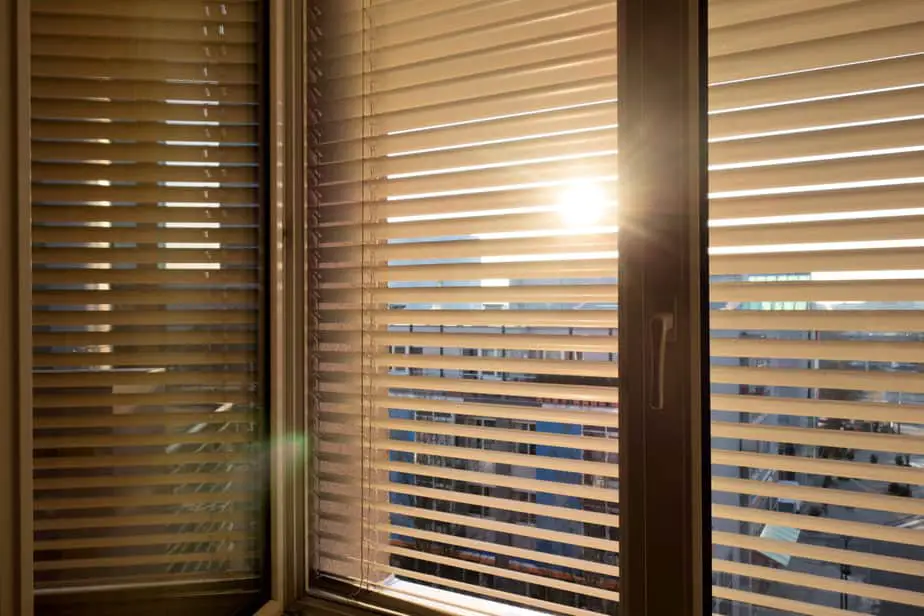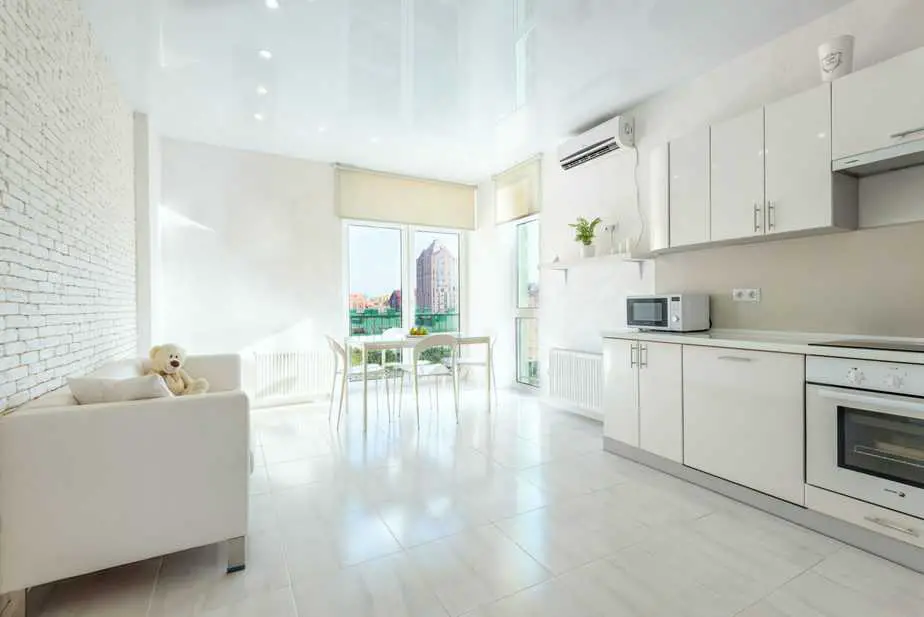Everyone needs something to cover their windows, whether it’s for privacy, to stop the sun or heat from coming in, or to simply finish the decor of the room. But do you choose blinds vs shades? What is the difference?
Although it makes very little difference, people actually use the words blinds and shades for both, but if we are going to be pedantic, they are two completely different window treatments.
In this article, we discuss the differences fit for your circumstances.
What’s the Difference Between Blinds vs Shades?
A blind is considered to be a window covering that is made of individual slats and vanes. These could be made of many different materials (wood, faux wood, plastic, or metal), they can be horizontal or vertical and can go up and down and be tilted from side to side to get the perfect amount of light into the room.
A shade is a soft window treatment, made from a single piece of material. Shades can be made from many different materials and colors but because they are made from a single piece, you are very limited as they can only be adjusted up and down, not side to side.
Shades have no slats or individual pieces and therefore give a smooth finish to the windows you apply them. Instead of being able to tilt the slats (as you do with blinds) to get the appropriate amount of light into the room, with shades, it’s a case of choosing the right kind of material instead.
Shades are controlled vertically by a simple cord or sometimes spring mechanisms which allow the material of the shade to fold onto itself when you raise the shade or unfold as you lower it.
Light Control And Privacy:
On the whole, blinds are much better for controlling levels of light as you have slats that can be adjusted and tilted to the exact angle you need.
With shades, you are more limited as you only really have two options – open or closed.
There is no way to tilt a shade as they have no slats to maneuver into a great angle however you can opt for a light-filtering fabric that will allow you to have light coming into the room and also maintain a good level of privacy at the same time.
Heat Control And Insulation
Blinds are poor insulators but are very good at keeping your rooms cool and controlling the heat in your home. The slats are the biggest factor at play here as you can close them completely to block out the heat from the sunlight from entering the room as well as trap in the warmth in the cooler months. Fully closing the blinds is the only way to maximize and retain any warmth in the winter months.
Shades on the other hand are extremely good at both insulating the home and keeping it cool, depending on the time of the year. The biggest factor at play is the fabric as the solid piece blocks out both the heat in the summer and the cold in the winter.
Some shades are better than others, but a solid choice for heat control is Cellular Shades due to their air pocket design.
Cleaning
Blinds are generally the easier of the two to clean as they are made from hard materials and can be dusted or wiped with a damp cloth.
Cleaning shades can be achieved by using a vacuum cleaner for dust and loose dirt or a gentle spot clean with warm water but if there are any more severe stains or dirt you will likely need to get them professionally cleaned.
Durability
On the whole, blinds tend to be the more durable option due to the materials they are made from – the woods, pvc’s, and aluminum are hard products and can handle more wear and tear that naturally happens when you are opening and closing the blinds on a daily basis.
The downside to blinds is their controls and various slats – it’s not that difficult for a child or pet to get tangled or be a bit too forceful and break the cords or other controls.
Shades having a single large piece of fabric makes them naturally durable but some of the more delicately made shades such as Cellular shades can be damaged very easily. As with many of the factors in choosing Blinds or Shades, it matters a lot what room they will be in, the material you choose, and the dynamic of the house – do you have children or pets, etc?
Style
In terms of style, this will ultimately come down to how you want the room to look. Both blinds and shades have unlimited options in terms of colors, materials, and finishes however broadly speaking; wood-finished blinds are good for day-to-day living where the window coverings are just “part of the room” as they will give a clean and classic look.
But if you are more extravagant then you can go for the bright colors or fabrics that are on offer with Roman and Roller shades which will really stand out and make a statement. You can also pair shades with curtains, drapes, and valances.
Child Safety
Child safety has come into the spotlight in the last few years after some tragic accidents hit the headlines.
For the absolute highest level of safety, you should opt for blinds or shades without any cords at all however if this is not an option due to the pricing or being able to find the style you like you should always make cords as short as possible and use the cord stops and fixings that come with window coverings which limits the movement of any cords. For window coverings that have a full loop cord, you should always attach them to the wall to avoid a loop hanging within reach of children.
You can get a vast amount of very useful information about blind safety from the Window Covering Safety Council website.
Price
In terms of price there is not too much difference between the two as this comes down to many factors including the style, the material, etc but due to the nature of blinds having few options to customize you can say that they come in a little cheaper on the whole.
Due to the wider variety of options available to customize shades they do tend to come in a little higher priced on the whole, especially when you start adding motorized elements.
Maintenance
In terms of maintenance, both blinds and shades are fairly easy to maintain. The majority of the work is in the cleaning. If you can keep on top of the cleanliness by regularly dusting and wiping (especially in bathrooms and kitchens) then there is not a lot more to do.
If you are using the blinds/shades regularly then this also helps keep them in good working order. For places like spare rooms or rooms where they are not operated that often, it’s good practice to operate them from time to time.
Good quality window coverings should last around 10 years but over the course of this time you may need a few minor repairs or to lubricate the controls with some lubricant spray.
Other than that window blinds and shades are very simple to maintain and should almost be set and forgotten.
Conclusion:
Hopefully, this short article has helped lay out the very basic differences between blinds vs shades and will at least allow you to use the language when you speak to your local window treatment experts or when searching online.
For more in-depth information, we have many articles on the site and we are confident that we can help answer most of your questions before you take the plunge and buy the highly-preferred window treatment for your home.



